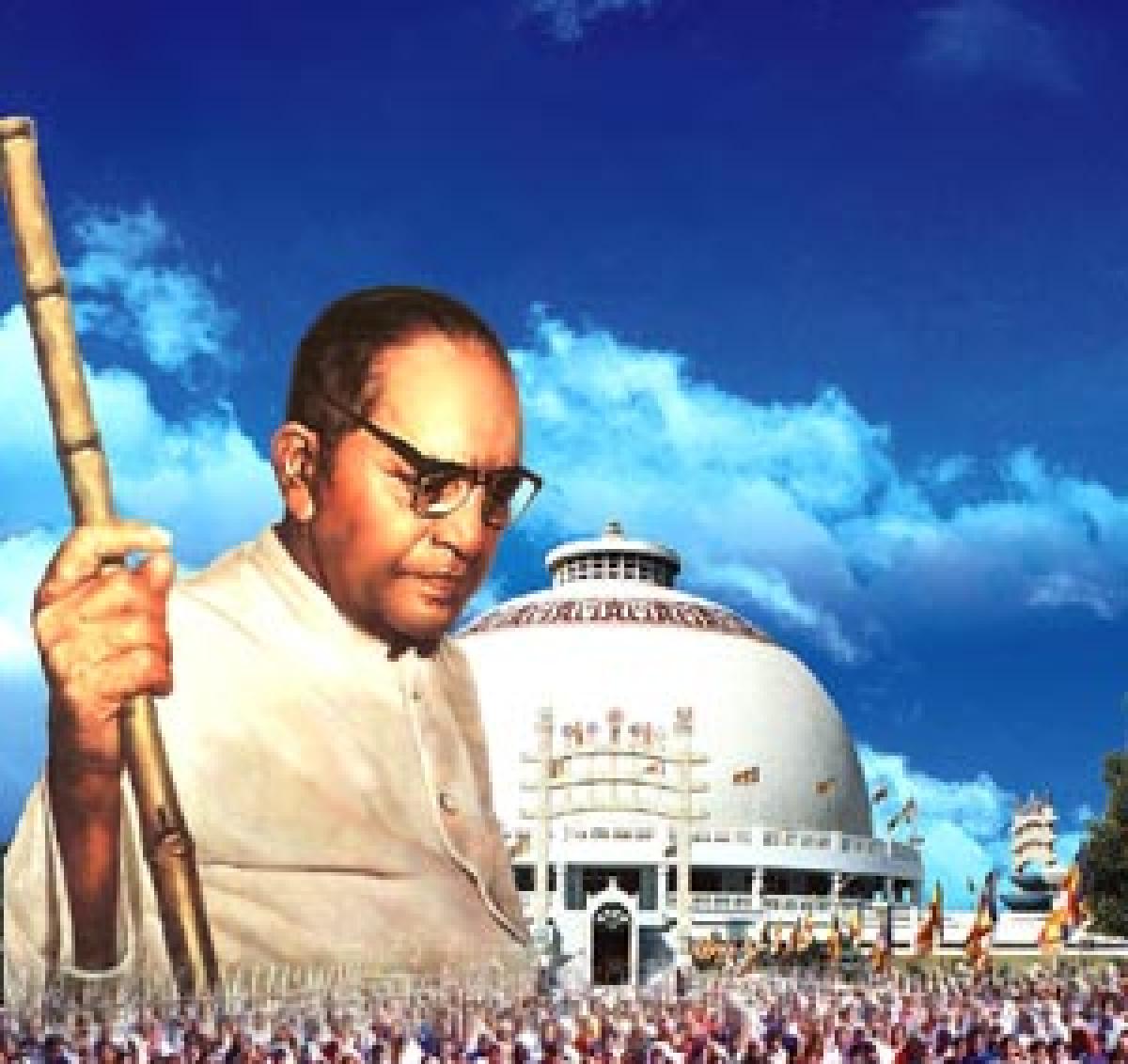An icon no party can afford to ignore

Bhimrao Ramji Ambedkar, whose 125th birth anniversary falls on April 14, has emerged as one of India\'s most revered leaders especially during the last two decades. No political party can afford to ignore him though the reasons for doing so are more electoral than emotional.
Dr B R Ambedkar’s 125th birth anniversary today
Bhimrao Ramji Ambedkar, whose 125th birth anniversary falls on April 14, has emerged as one of India's most revered leaders especially during the last two decades. No political party can afford to ignore him though the reasons for doing so are more electoral than emotional.
Independent India's first cabinet of prime minister Jawaharlal Nehru had only 14 members with B R Ambedkar as law minister listed at No.11 in the order of precedence, below Jagjivan but above Dr Shyama Prasad Mukherji of the Hindu Mahasabha (later the Jan Sangh founder). Mahatma Gandhi had prevailed upon Nehru Sardar Vallabhbhai Patel to include non-Congressmen as well because independence had come for the whole country and not only for those who led the freedom movement.
It was only four years later, on September 27, 1951, after Ambedkar quit the Nehru cabinet that it became known that one of the causes for his doing so was that he was not given the portfolio of his choice: Ministry of Planning. However, the prime reason for his resigning was over the government's failure to pass the Hindu Code Bill, faulting Nehru with "lack of determination" to get the measure through.
Suffering from many ailments, including diabetes, rheumatism and high blood pressure contacted in a life full of relentless struggles, Ambedkar died in December 1956 after turning 65. Only two months earlier, he had formally embraced Buddhism and converted lakhs of his followers to his new faith. It was a culmination of a long process spanning nearly 50 years. But it was really after independence that Ambedkar made up his mind to adopt Buddhism, a religion he saw as a liberating force for the entire country.
Even though he had ceased being a minister, the government allowed him to retain his bungalow where he spent the final years of his life focussed on studying Buddhism. He also began to learn Pali and translated Buddhist texts into Gujarati and Marathi. In 1954, during a trip to Burma (now Myanmar), Ambedkar made a proposal for sponsoring a campaign for Buddhist conversion in India, arguing that Budhism was a religion for the whole world.
As Ambedkar will be remembered most by posterity for his monumental contribution to the making of India's constitution it is appropriate to quote from his last speech in the Constituent Assembly on November 25, 1949, the eve of the statute being adopted the following day:
"On January 26, 1950, we are going to enter into a life of contradictions. In politics we will have equality and in social and economic life we will have inequality. In politics we will be reorganising the principle of one man-one vote and one vote-one value. In our social and economic life, we shall, by reason of our social and economic structure, continue to deny the principle of one man-one value.
How long shall we continue to live this life of contradictions? How long shall we continue to deny equality in our social and economic life? If we continue to deny it for long, we will do so only by putting our political democracy in peril. We must remove this contradiction at the earliest possible moment or else those who suffer from inequality will blow up the structure of political democracy which this Assembly has so laboriously built up."
But Ambedkar was much more than the architect of India's constitution and a Dalit leader who today towers above others of his ilk. He was an educationist, economist, anthropologist, sociologist, journalist, jurist and, above all, a great parliamentarian and social reformer who devoted his whole life for the uplift of the weakest and most vulnerable sections of Indian society. This much and, more, will be remembered, and said, about Ambedkar during the year of his 125th birth anniversary celebrations.








